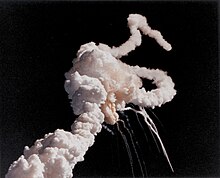Types of engineers

There are many branches of engineering, each of which specializes in specific technologies and products. Typically, engineers will have deep knowledge in one area and basic knowledge in related areas. For example, mechanical engineering curricula typically includes introductory courses in electrical engineering, computer science, materials science, metallurgy, mathematics, and software engineering.
When developing a product, engineers typically work in interdisciplinary teams. For example, when building robots an engineering team will typically have at least three types of engineers. A mechanical engineer would design the body and actuators. An electrical engineer would design the power systems, sensors, electronics, embedded software in electronics, and control circuitry. Finally, a software engineer would develop the software that makes the robot behave properly. Engineers that aspire to management engage in further study in business administration, project management and organizational or business psychology. Often engineers move up the management hierarchy from managing projects, functional departments, divisions and eventually CEOs of a multi-national corporation.
| Branch | Focus | Related sciences | Products |
|---|---|---|---|
| Aerospace engineering | Focuses on the development of aircraft and spacecraft | Aeronautics, astrodynamics, astronautics, avionics, control engineering, fluid mechanics, kinematics, materials science, thermodynamics | Aircraft, robotics, spacecraft, trajectories |
| Architectural engineering and building engineering | Focuses on building and construction | Architecture, architectural technology | Buildings and bridges |
| Biomedical engineering | Focuses on closing the gap between engineering and medicine to advance various health care treatments. | Biology, physics, chemistry, medicine | Prostheses, medical devices, regenerative tissue growth, various safety mechanisms, genetic engineering |
| Chemical engineering | Focuses on the manufacturing of chemicals and or extraction of chemical species from natural resources | Chemistry, thermodynamics, chemical thermodynamics, process engineering, Transport phenomena, nanotechnology, biology, Chemical kinetics, genetic engineering medicine, Fluid mechanics | Chemicals, Hydrocarbons, Fuels, medicines, raw materials, food and drink, Waste treatment, Pure gases, Plastics, Coatings, Water treatment, |
| Civil engineering | Focuses on the construction of large systems, structures, and environmental systems | Statics, fluid mechanics, soil mechanics, structural engineering, geotechnical engineering, environmental engineering | Roads, bridges, dams, buildings, structural system, foundation, earthworks, waste management, water treatment |
| Computer engineering | Focuses on the design and development of computer hardware & software systems | Computer science, mathematics, electrical engineering | Microprocessors, microcontrollers, operating systems, embedded systems, computer networks |
| Electrical engineering | Focuses on application of electricity, electronics, and electromagnetism | Mathematics, probability and statistics, engineering ethics, engineering economics, instrumentation, materials science, physics, network analysis, electromagnetism, linear system, electronics, electric power, logic, computer science, data transmission, systems engineering, control engineering, signal processing | Electricity generation and equipment, remote sensing, robotics, control system, computers, home appliances, Internet of things, consumer electronics, avionics, hybrid vehicles, spacecraft, unmanned aerial vehicles, optoelectronics, embedded systems |
| Industrial engineering | Focuses on the design, optimization, and operation of production, logistics, and service systems and processes | Operations research, engineering statistics, applied probability and stochastic processes, automation engineering, methods engineering, production engineering, manufacturing engineering, systems engineering, logistics engineering, ergonomics | quality control systems, manufacturing systems, warehousing systems, supply chains, logistics networks, queueing systems, business process management |
| Mechatronics engineering | Focuses on the technology and controlling all the industrial field | Process control, automation | Robotics, controllers, CNC |
| Mechanical engineering | Focuses on the development and operation of energy systems, transport systems, manufacturing systems, machines and control systems | Dynamics, kinematics, statics, fluid mechanics, materials science, metallurgy, strength of materials, thermodynamics, heat transfer, mechanics, mechatronics, manufacturing engineering, control engineering | Cars, airplanes, machines, power generation, spacecraft, buildings, consumer goods, manufacturing, HVAC |
| Metallurgical engineering/materials engineering | Focuses on extraction of metals from its ores and development of new materials | Material science, thermodynamics, extraction of metals, physical metallurgy, mechanical metallurgy, nuclear materials, steel technology | Iron, steel, polymers, ceramics, metals |
| Mining engineering | Focuses on the use of applied science and technology to extract various minerals from the earth, not to be confused with metallurgical engineering, which deals with mineral processing of various ores after they have already been mined | Rock mechanics, geostatistics, soil mechanics, control engineering, geophysics, fluid mechanics, drilling and blasting | Gold, silver, coal, iron ore, potash, limestone, diamond, rare-earth element, bauxite, copper |
| Software engineering | Focuses on the design and development of software systems | Computer science, information theory, systems engineering, formal language | Application software, mobile apps, websites, operating systems, embedded systems |
Comments
Post a Comment